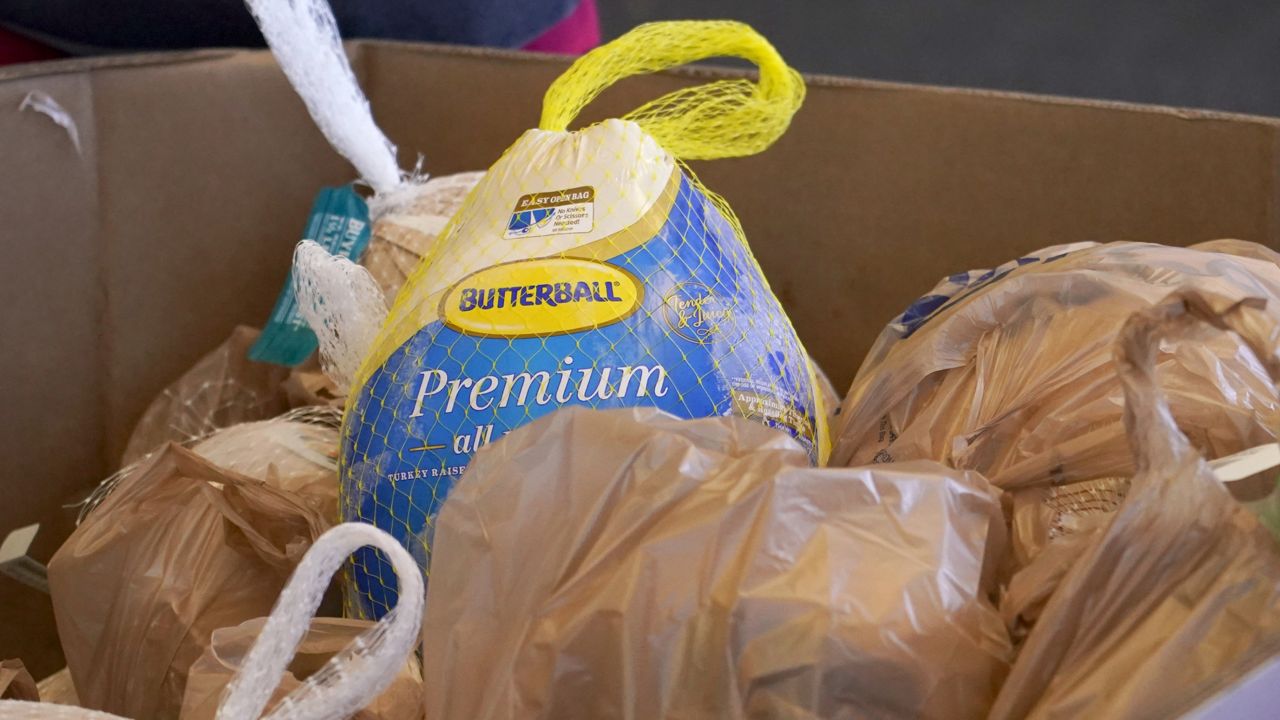Americans could be in for a financially difficult Thanksgiving and holiday shopping season, thanks to rising inflation, global supply chain issues and widespread worker shortages.
Prices for U.S. consumers jumped 6.2% in October compared with a year earlier, leaving families facing their highest inflation rate since 1990, the Labor Department said Wednesday. From September to October, prices jumped 0.9%.
Global supply chain issues have compounded the financial difficulties for many, with Americans now spending 15% more on goods than before the pandemic.
Ports, trucking companies and railroads can’t keep up, and the resulting bottlenecks are swelling prices. Surging inflation has broadened beyond pandemic-disrupted industries into the many services that Americans spend money on, notably for restaurant meals, rental apartments and medical services, which jumped 0.5% in October.
Many large companies are passing on the cost of higher pay to their customers, and in some cases, consumers are likely to pay up for holiday consumption rather than give it up.
Cranberries, a Thanksgiving staple in many American households, is just one example of a food item that will cost more this year, thanks in large part to shipping backlogs across the country. Ocean Spray, an agriculture cooperative of family-owned farms that produces a large portion of the U.S. cranberry and grapefruit supply, is just one of the many companies that has struggled to keep up with demand this year.
“Ocean Spray has had supply chain challenges, the whole industry has,” Ocean Spray CEO Tom Hayes said on ABC’s “Good Morning America” on Thursday. “We will continue to do our best to keep supplies going and supplies on shelves, but we've had to be resilient this year.”
Ocean Spray has been forced to pass on a slight price increase to customers this holiday season, Hayes added, saying the change is due in part to adjustments in shipping costs and low availability of steel cans.
“We have a lot of costs going up — all ingredients, transportation. It is something that is continuing to affect us as a company and we do have to pass those on," he said, adding: "We're doing our best to keep costs down, but we have taken pricing and are looking forward to still having a great season."
Cranberries are not the only traditional holiday food facing a price hike this year. Experts have already seen a “furious rally in turkey prices” as the holiday season nears. According to data from this week’s Department of Agriculture turkey report, the price for 8-15lb frozen hen turkeys cost an average of $1.41 per pound of meat compared to $1.15 per pound last year.
Fueling the spike in prices has been robust consumer demand, which has run into persistent supply shortages from COVID-related factory shutdowns in China, Vietnam and other overseas manufacturers. America’s employers, facing worker shortages, have also been handing out sizable pay raises, and many of them have raised prices to offset those higher labor costs.
The accelerating price increases have fallen disproportionately on lower-earning households, which spend a significant portion of their incomes on food, rent, and gas. Food banks are struggling to assist the needy, with beef, egg and peanut butter prices jumping. Millions of households that are planning year-end travel, Thanksgiving dinners and holiday gift-giving will be forced to pay much more this year.
But the price increases are not only limited to households.
U.S. food banks, already dealing with increased demand from families sidelined by the pandemic, are also faced with tough choices as the holiday season nears.
The higher costs and limited availability mean some families may get smaller servings or substitutions for staples such as peanut butter, which some food banks are buying for nearly double what it cost two years ago. As holidays approach, some food banks worry they won’t have enough stuffing and cranberry sauce for Thanksgiving and Christmas.
“What happens when food prices go up is food insecurity for those who are experiencing it just gets worse,” said Katie Fitzgerald, chief operating officer of Feeding America, a nonprofit organization that coordinates the efforts of more than 200 food banks across the country.
Supply chain disruptions, lower inventory and labor shortages have all contributed to increased costs for charities on which tens of millions of people in the U.S. rely on for nutrition. Donated food is more expensive to move because transportation costs are up, and bottlenecks at factories and ports make it difficult to get goods of all kinds.
The Biden administration has taken a number of steps in recent weeks to ease the strain on struggling U.S. ports. The president on Wednesday visited the Port of Baltimore, just one day after his administration announced a bevy of actions to fund ports and address supply chain issues ahead of the implementation of the infrastructure bill, which will devote an “unprecedented” $17 billion to improve port infrastructure — the single largest federal investment in U.S. ports in the nation’s history, per the White House.
The president also said he had spoken to the CEOs of major retailers Walmart and Target, as well as leading shipping companies FedEx and UPS, who assured him that “the shelves will be stocked in stores this holiday.”
The Department of Transportation is also taking a number of actions to address shipping challenges, including a “working with states to make it easier to issue commercial driver's licenses,” transportation secretary Pete Buttigieg told CBS News on Friday morning.
Buttigieg also attributed some worker shortages to lack of adequate childcare, saying President Biden’s proposed “Build Back Better” plan, which is still languishing in Congress, will help get parents back to the workforce.



